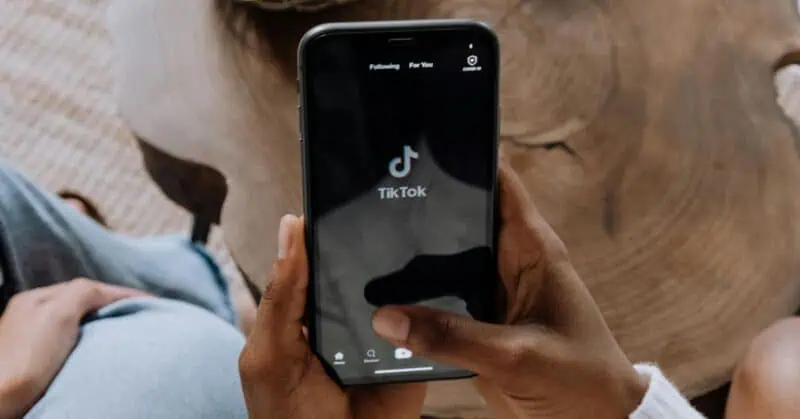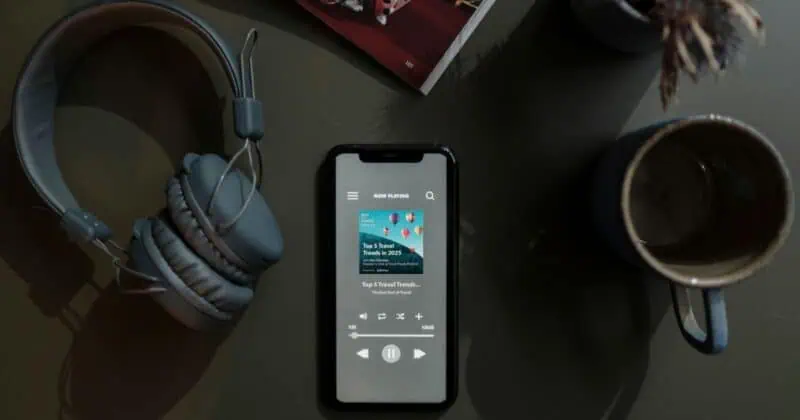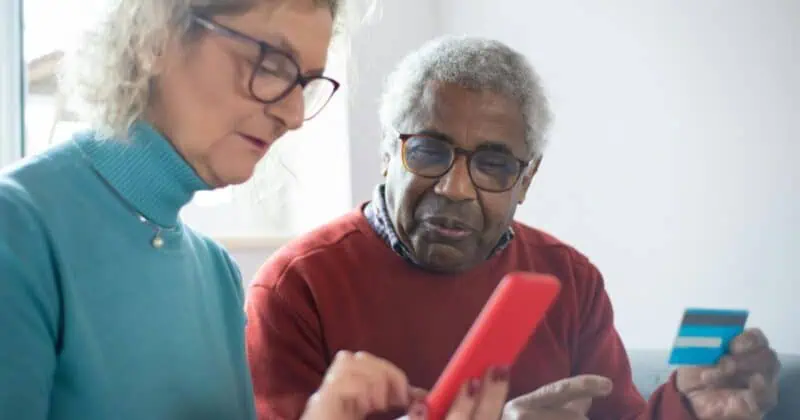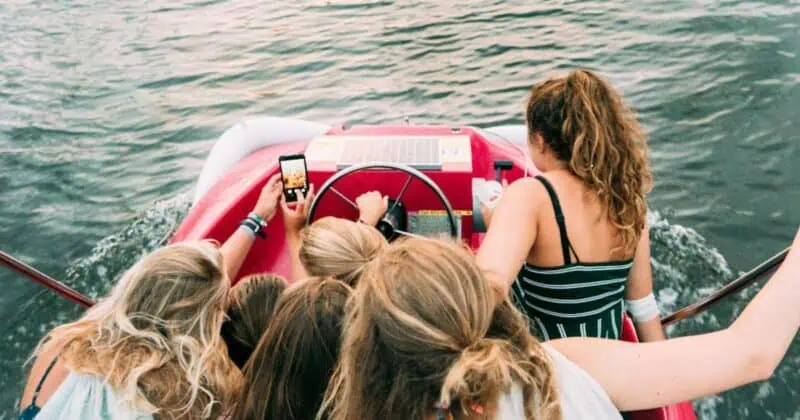Sue Cooper operates a million-dollar activities business in Key West, Florida, from a 10-by-10 shack and a floating dock. It might seem idyllic, but it didn’t come easy. It all started with a personal reckoning.
Some two decades earlier, Cooper had just received an “executive of the year” award from the footwear company she worked for. The next morning, she woke up feeling miserable. She quit the job and focused on creating a life she would love. “I wanted to live on an island, work on the water, be physical, and build a brand,” she says. “And I wanted to get a dog.”
Looking back, “I can say that I had a company culture before I even had a company,” Cooper says. “I knew that I wanted to create a company with a really cool, unique feel. I knew that I wanted to educate people, and I wanted to make a difference in people’s lives. I wanted to take all the things that I love and create a business with them.”
Cooper moved to Key West, saw some kayakers out on the water, thought it looked like fun, and got a job with the company. The rest is the story of how Lazy Dog Adventures went from a one-woman operation that generated about $50,000 with a single cruise ship contract during its first year of operation to a multi-faceted business with a staff of nine people and 16 to 21 seasonal employees.
“We’re unique in that we run the business out of a 10-by-10 shack,” Cooper says. “It’s our office, the lunch room, the locker room—it’s everything. There are about 28,000 customers who come through our little shack every year, and we do everything from basic tours and rentals to paddle yoga.”
Selling Much More than Tours & Rentals
Kayak and paddle board tours and rentals are the backbone of Lazy Dog’s business: the company has 67 seats in double and single kayaks and 40 paddleboards. Lazy Dog also offers paddle yoga and paddle board training, back country boat adventures, and personal growth workshops and seminars crafted around the ideas in Cooper’s book, Millionaire in Flip Flops.

Everything Cooper takes on comes back to supporting Lazy Dog’s kayak and paddle board activities. “The workshops, my books, and if I have a speaking engagement—those are all organic marketing tools for people to come and find us at our shack,” she says. “The brand is another vehicle to bring attention to the tour and rental business, which is our main day-in and day-out job.”
Lazy Dog’s customers
Most of Lazy Dog’s customers are from outside Key West, including international visitors. Her contract business with cruise ships has expanded, and cruise passengers comprise the second largest passenger base, followed by locals.
“We have a lot of local business,” Cooper says. “Being involved in the community down here is hugely important, so we really take care of our locals in terms of price and flexibility around when they can rent.”
“The biggest change we’ve seen in our customers and in the way we do business is that it’s all moved online,” Cooper says. “When I first started, it was all about the concierges and who knew you. How customers are finding us now is very different, and people are booking their excursions with us before they even get to Key West.”
Stepping Out – and Up – to Drive Growth
Cooper has every intention of continuing to grow the business, nationally and beyond.
“I am competitive with myself and I love seeing the bottom line grow,” Cooper says. “I want to build Lazy Dog into a nationally known brand and a household name to spread our vibe and our energy and all the things that are important to the Lazy Dog way of life—taking care of yourself, enjoying yourself, and life-work integration rather than balance.”
She has increased business through a variety of creative initiatives, many of them prompted by customer requests. “The business has always grown organically because Lazy Dog is an extension of my lifestyle,” Cooper says.
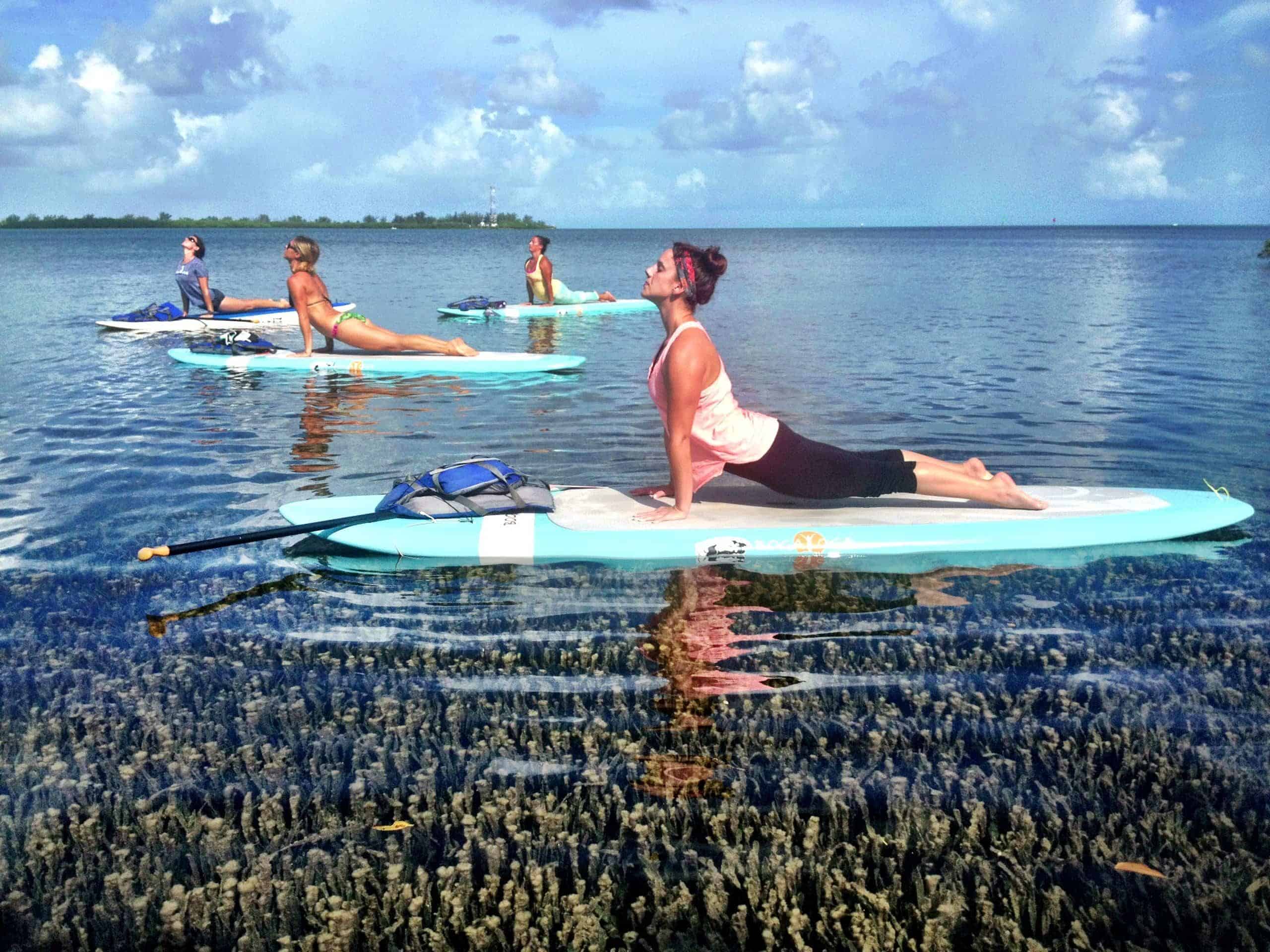
Cooper traveled the country on the paddle board racing circuit, bringing along friends and employees to racing events, and Lazy Dog became associated with paddle board expertise. “We built the brand organically again, just by going out and having fun,” she says.
Cooper took Lazy Dog’s paddle boarding reputation and expertise into another realm by writing the paddle boarding program for the Special Olympics, training coaches and athletes, and developing and hosting a race with 90 participants. As a result, Florida officially added paddle boarding as a sport to the state’s Special Olympics, and the national Special Olympics committee added it soon after.
“When I was able to give to the Special Olympics and see the impact I made on the community and with the athletes it all came together for me,” Cooper says. “That’s when I truly felt successful.”
Insights on building a successful activities business
Here are some of Cooper’s insights on how she continues to build Lazy Dog’s reputation and success:
Hiring and staffing: “I joke that we probably have the most over-qualified staff. We have a marine biologist, geologist, a psych major, a conservationist. We have a lot of really unique people who love what they do and we have similar interests. We love travel, we love the water, we love educating people, being outside, and we love dogs. There is a lot of flexibility. The job is a lifestyle, not just work. I run a very loose ship because I want everybody’s personalities to come out. We want everybody to be safe and we have time certain restraints on the tours, but as long as our guides are giving people a great time I want them to do what they need to do and let their personalities shine through. I love giving people the freedom to do the tour organically, in a way that works for them, and customers feel that. Having that unique feel to a tour gives the customer a better connection to the guides, and also to the company.”
Competition and growth: “We are going to continue to look forward at what’s next, always being aware of what competitors are doing but never giving them too much attention. They aren’t going to be great Lazy Dogs; they are going to find their own niche. The way I look at it is there is enough business for everybody. My philosophy is to be a good ambassador, not only for my business, but for the industry that I’m in and also for Key West. For me to grow my business I need to grow the industry. With paddle boarding, how can I grow the industry so more people want to paddle? And how can I grow tourism in Key West so more people come here. For me, it’s always been much bigger than just my business and the bottom line.”
Current challenges: “One of my biggest concerns is the health of our water and having clean oceans. We have had red tides shut down parts of Florida. We’ve been through three major hurricanes and countless tropical storms that have shut the island down and forced mandatory evacuations, and we’ve always bounced back. We’ve dealt with a lot. Last year there was a category 5 hurricane that was set to demolish the island. It was some scary stuff. We try not to worry too much about things we don’t have any control over, and day by day we put all our energy into growing the business and creating great experiences for people.”
Lazy Dog’s philosophy: “Our philosophy is the answer to the customer is always yes, and then we will figure out how to make it happen. In some cases, people have saved for two years to go on vacation for a week, and they are coming down here to Key West and choosing to go out with Lazy Dog. How cool is that? We have to remember how lucky we are that they chose us and that we have the opportunity to make this experience incredible for them. That is bottom-line important for me and my staff. That’s really what it comes down to, caring for people.”






